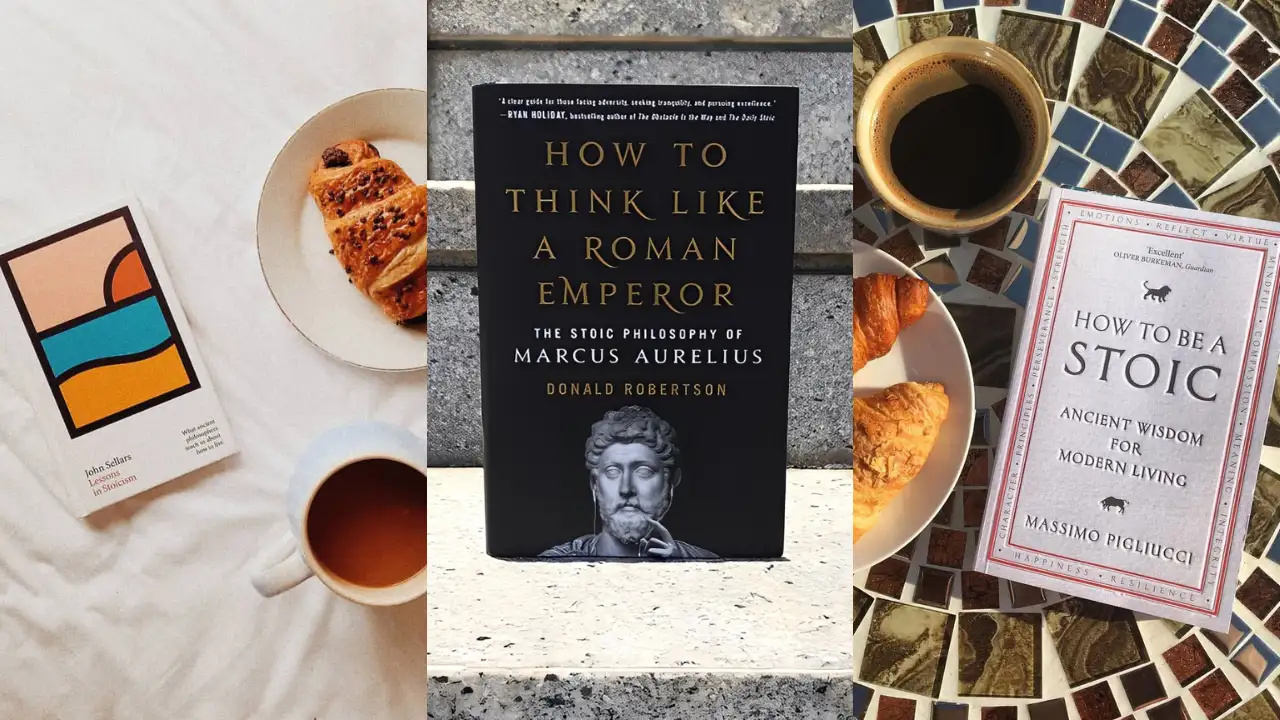By Girish Shukla
Copyright timesnownews

In a world drowning in productivity hacks and life-coaching slogans, there is something startlingly refreshing about going back to words written thousands of years ago. The Stoics never promised overnight transformations or ten easy steps to happiness. Instead, they offered tools to live with dignity, clarity, and resilience, no matter what life brought. These eight books cut through the noise of modern self-help and still speak louder than any motivational quick fix. They remind us that wisdom endures because it does not pander, it tells the truth. Also Read: 10 Stoic Books to Read Before You Lose Your Mind 1. The Art of Living: The Classical Manual on Virtue, Happiness and Effectiveness by Epictetus Epictetus, a former slave turned philosopher, believed true freedom lies in mastering the mind. This manual, edited by Sharon Lebell, presents his teachings in accessible language, offering insights into how to navigate daily frustrations, relationships, and the search for meaning. Unlike modern self-help that often promises success, Epictetus focuses on integrity and inner calm. It is a book that asks readers to face themselves honestly, stripping away illusions to reveal the power of choice and perspective in every moment. 2. How to Die: An Ancient Guide to the End of Life by Seneca Seneca’s writings on mortality remain startlingly direct. In this collection, translated and edited for modern readers, he argues that learning how to die well is inseparable from learning how to live well. Far from morbid, the book is liberating, forcing us to confront what we fear most. It strips away the panic around death and reframes it as part of nature’s design. For readers exhausted by quick-fix positivity, Seneca’s clarity feels like a bracing truth that allows life to be savoured fully. 3. How to Be a Stoic: Using Ancient Philosophy to Live a Modern Life by Massimo Pigliucci Philosopher Massimo Pigliucci bridges the gap between ancient thought and modern dilemmas. Conversational and practical, his book shows how Stoic philosophy applies to issues like career anxiety, relationships, and personal setbacks. Unlike self-help manuals that chase external rewards, Pigliucci offers a framework rooted in reason and self-examination. By engaging directly with Epictetus’s wisdom, he models how philosophy can become a daily practice rather than abstract theory. This is Stoicism as a living tradition, ready to support anyone seeking a steadier, saner life. 4. The Practicing Stoic by Ward Farnsworth Ward Farnsworth’s book is a deep dive into Stoic thought, drawing on a wide range of original sources. It strips away commentary and presents the philosophy in a form that feels both timeless and urgent. Farnsworth does not dilute Stoicism into slogans. Instead, he challenges readers to engage with difficult questions about anger, control, and acceptance. This is not a book for those seeking easy comfort. It is for readers ready to confront themselves and practise philosophy as a discipline, not a pastime. 5. How to Think Like a Roman Emperor: The Stoic Philosophy of Marcus Aurelius by Donald J. Robertson Donald Robertson, a cognitive behavioural therapist, blends biography, philosophy, and psychology in this compelling portrait of Marcus Aurelius. The Roman emperor’s Meditations has long been a classic, but Robertson brings it to life by connecting Stoic ideas with modern therapy. The result is both scholarly and practical, showing how Marcus dealt with loss, responsibility, and personal struggle. For readers overwhelmed by the pressures of modern living, Robertson offers a steady hand, proving that ancient wisdom can stand alongside modern science in guiding a resilient life. 6. Dying Every Day: Seneca at the Court of Nero by James Romm This historical account examines Seneca’s complex role as advisor to Nero, a position that tested his Stoic ideals against political corruption and danger. James Romm paints a vivid picture of a philosopher torn between principle and survival. The book shows philosophy not as abstract doctrine but as lived experience under extreme pressure. By revealing Seneca’s compromises and failures, it humanises Stoicism and makes it all the more powerful. Readers see that wisdom is not about perfection but about striving, even in impossible circumstances. 7. A Handbook for New Stoics: How to Thrive in a World Out of Your Control – 52 Week-by-Week Lessons by Gregory Lopez This modern guide translates Stoic philosophy into a structured year-long programme. Each week offers a practical exercise grounded in Stoic principles, from reframing negative thoughts to reflecting on mortality. Gregory Lopez makes the philosophy active, reminding readers that Stoicism was always meant to be practised, not just admired. For those seeking a disciplined way to apply ancient insights, this handbook offers structure without empty promises. It is a workbook for resilience, urging readers to take philosophy off the page and into their daily lives. 8. Lessons in Stoicism: What Ancient Philosophers Teach Us About How to Live by John Sellars John Sellars distils Stoic philosophy into a compact, accessible introduction that feels both rigorous and personal. He focuses on how Stoic ideas about control, desire, and acceptance can help us navigate modern challenges without being consumed by them. Sellars writes with clarity and compassion, showing that philosophy is not just for scholars but for anyone trying to live more wisely. It is a slim book, but it carries immense weight, offering readers a starting point that feels timeless in its relevance. Also Read: 10 Stoic Books to Make You Mentally Unshakeable What sets these books apart from modern self-help is their refusal to flatter. They do not offer shortcuts or guarantees of happiness. Instead, they demand reflection, patience, and courage. The giveaway is simple but profound: life cannot be controlled, but our response to it can be shaped. For readers tired of motivational clichés, Stoicism remains a philosophy that whispers across centuries, urging us to live with integrity and clarity. These books remind us that sometimes the oldest voices are still the truest guides.



